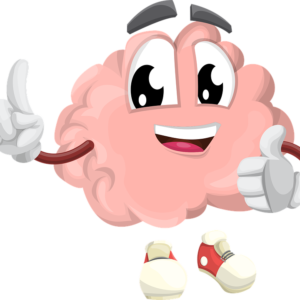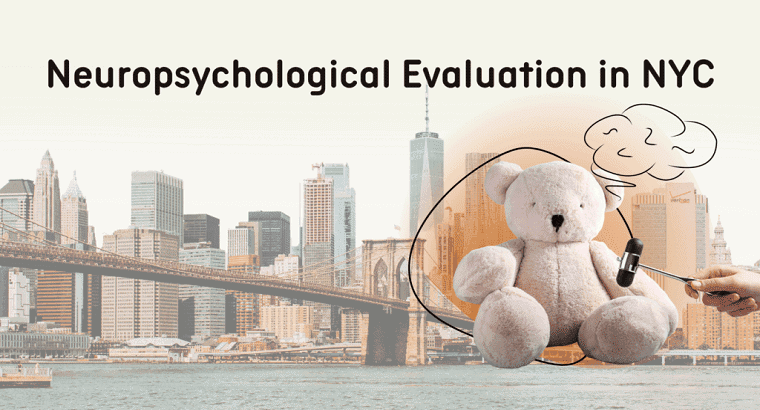
17 Aug New York City Neuropsychological Evaluation
Neuropsychological Evaluation in NYC
The best way to understand how children think, problem-solve, and learn is often through comprehensive neuropsychological or psychoeducational testing.
A skilled professional, on the other hand, can probe further by evaluating the various aspects of a child’s intelligence, learning, memory, language, visual-spatial, executive functioning, personality, and social-emotional functioning in real-time, by using data compared to the child’s peers and then interpreting that data into a meaningful narrative explaining how the child learns.
Being proactive (not reactive) in helping children and teens is one of the best things you can do for your family. According to research, children with problems diagnosed early and given proper accommodations and treatment make the most progress over the long term. One of the greatest methods to achieve this is via formal neuropsychological testing.
⏩Need A Neuropsychology Referral?⏪
Who does a neuropsychological assessment?
A neuropsychologist does the neuropsychological assessment. A neuropsychologist is a clinical or school psychologist with a Psy.D. or Ph.D., who has a two-year post-doctoral residency in neuropsychology.
Although some neuropsychologists focus on a certain age group, all neuropsychologists assist in identifying the underlying causes of an individual’s strengths and struggles in functioning across environments.
In addition to psychiatrists and psychologists, neurologists, oncologists, speech-language pathologists, and occupational therapists also frequently collaborate closely with neuropsychologists.
Neuropsychological testing’s advantages and purposes:

- Ensure unique testing, classroom, or school placement needs (e.g., 504, IEP, special-ed school, extended time on SATs).
- Determine whether any developmental delays or learning disorders, such as dyslexia or autism, may negatively influence a student’s performance in school.
- Determine areas of strength and weakness for potential improvement or correction, including cognitive/intelligence, academic/achievement, attention/concentration/executive functioning, language/communication, learning/memory, visual-spatial, fine and gross motor, social-emotional, play skills, and adaptive functioning skills.
- Provide clarification on diagnostic issues with mood, anxiety, social, and behavioral issues (e.g., ADHD, Autism Spectrum Disorder, Generalized Anxiety Disorder, Depression).
- Determine the effects of medical problems on cognitive, emotional, and behavioral functioning (such as epilepsy and traumatic brain injury).
- Find psychological traits that could have a detrimental effect on learning and general functioning.
- Analyze the effects of interventions and therapies and note any developments since the previous evaluation.
Types
A thorough neuropsychological examination combines the profile or pattern of test findings discovered during the evaluation with the person’s educational/occupational, mental, neurologic, and medical histories. It ought to assist in explaining some of the struggles or discomfort that a person goes through daily. There are several neuropsychological tests, including:
- Simple memory and attention tests, orientation questions, and short exams that might last under an hour.
- Other evaluations may be reasonably quick (3–4 hours) and contain several measurements of various significant cognitive domains or regions that the examiner thoroughly evaluates.
- A different kind could be more thorough and contain measurements of IQ, cognitive skills, academic achievement, and personality. It can require many appointments spread out over 6 to 10 hours.
- These tests may be quite narrowly targeted, such as screening for learning issues in people with ADHD, social and adaptive obstacles in people with ASD, or memory issues in people with Alzheimer’s.
Who needs a neuropsychological assessment?
Numerous neurologic and psychiatric diseases and issues are indications for neuropsychological examination, including but not limited to:
- Executive Functioning Difficulties and ADHD
- Difficulties at school and home
- Learning challenges and impairments
- Intellectual handicap
- Autism spectrum condition (ASD)
- Paired with challenges in schooling or other areas of life
- Cancer therapies’ long-term consequences
- Mental illnesses including schizophrenia, deep despair, and bipolar disorder
- Potential Alzheimer’s condition
- Cognitive and functioning issues brought on by neurological and birth defects (e.g., seizure disorders, epilepsy, traumatic brain injury, brain tumors, acquired or congenital hydrocephalus, premature birth)
- Stroke

To determine the severity of the impairment, neuropsychological testing may be necessary for response to relatively rapid changes in cognition or MRI results.
Schools and Neuropsychological Evaluations
Neuropsychological evaluations are performed in a private clinic. They resemble the free assessments provided by school psychologists but go by a different name for the school-based one, which is a psycho-educational evaluation. This is different from a neuropsychological evaluation.
A school-based review typically involves many specialists. Evaluation teams exist in schools. The school psychologist, for instance, may conduct some of the tests. A speech therapist could handle a different aspect.
To identify which children require special education assistance, schools provide these exams at no expense to the family. What makes some families choose private providers, then? Here are some of the reasons:
- Some families are concerned about stigma and do not want others to know that their child is undergoing testing.
- Families are not guaranteed to receive the school-based evaluation they want. If schools believe there are not enough indications that a child has significant issues, schools will not intervene.
- After receiving a school review, some families seek a “second opinion.”
Schools must at least consider private evaluations when determining whether a student qualifies for special education.
What a Neuropsychological Evaluation in NYC Will Entail
Making an appointment for a consultation with a neuropsychologist will be the first step. To determine whether you are the best candidate and what kind of testing might be helpful, neuropsychologists will make that determination during their intake.
The testing can take several days. Depending on the type of evaluation, it can be completed online, in person, or both. During the meeting, the psychologist will work with you to decide the precise scheduling and breakdown of the assessments.
Once the data is collected and the report is complete, the neuropsychologist will share their finding with you. They will answer your questions and make recommendations.
In terms of cost, most NYC private evaluators charge on average $4500-$7000 for a comprehensive neuropsychological evaluation. They are considered out-of-network, and you are responsible for paying this in full. Ask for a superbill to see if you can get reimbursed for an out-of-network claim. Although this seems like a lot of money, it is a worthwhile investment, and it will help you seek out the best tutoring, therapy, and medical interventions needed.
Check out our other blogs:
➡ Pediatric Neuropsychological Assessment FAQs
➡ What Is A Neuropsychological Evaluation And Its Purpose?
➡ What Does a Neuropsychological Evaluation Tell You?
Want to learn more about the neuropsychological evaluation in New York City? Chat with Themba Tutors Today!
We will connect you to some of the best neuropsychologists in the New York City metro area!
Call: (917) 382-8641, Text: (833) 565-2370
Email: [email protected]
(We respond to email right away!)
References:
Tucker, G.C. (n.d.). Neuropsychological Evaluations: What You Need to Know. Retrieved from: https://www.understood.org/en/articles/neuropsychological-evaluations-what-you-need-to-know
Neuropsychological Evaluation. (n.d.). Retrieved from: https://www.columbiadoctors.org/treatments-conditions/neuropsychological-evaluation
Neuropsychological Testing and Evaluation. (n.d.). Retrieved from: https://www.mountsinai.org/care/psychiatry/services/neuropsychology
Neuropsychological Testing (n.d.). Retrieved from: https://www.riviamind.com/services-specialties/neuropsychological-assessment/
Craig Selinger
Latest posts by Craig Selinger (see all)
- Psychotherapy and Support Services at Cope With School NYC - April 12, 2024
- NYC Parents of Teens Support Group - April 8, 2024
- Here I Am, I Am Me: An Illustrated Guide to Mental Health - April 4, 2024


No Comments